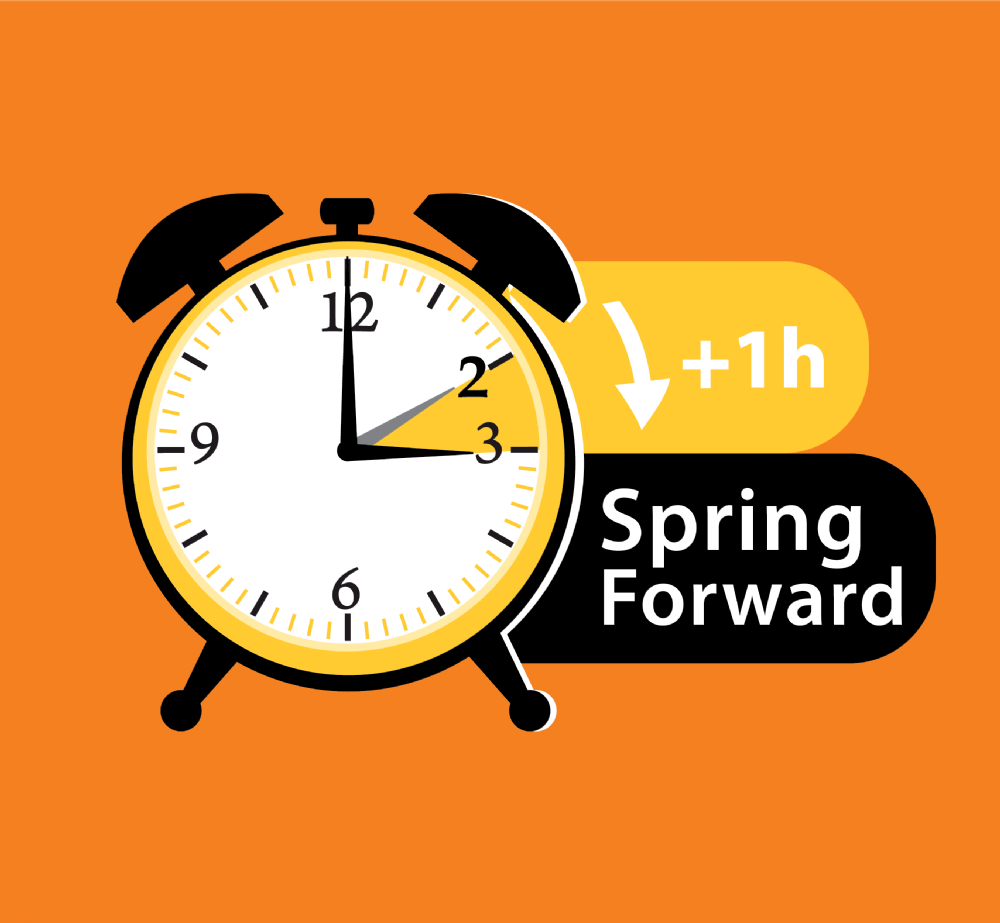Thanks, Ben – Daylight Savings Time

Image Courtesy of Weiss Lake
By Chris Carey
As much as we all look forward to gaining an hour of sunlight, we will lose an hour of sleep this Sunday, March 14. Satirically suggested by Ben Franklin back in the 1700s, Daylight Savings Time is a fixture of the modern age. The old adage of “Fall Back, Spring Forward” rings true year after year since the implementation of daylight savings time in the early 1900s, and every year I hear alarmingly passionate arguments for why Daylight Savings Time is the worst thing to have ever happened.
Unfortunately for those reading and looking for a bashing of the practice, this journalist believes that the pros of Daylight Savings outweigh the cons.
First, Daylight Savings was instituted as a way to conserve energy and fuel in the early 1900s. Initially, it was widely disputed in the United States and saw little uniform progress, with some states choosing to adopt the practice and some leaving it be.
Finally, in 1966, the United States passed the Uniform Time Act which officially decreed the Daylight Savings Time practices as standard, and set the dates we know now as the dreaded times to change the clocks.
Popular Mechanics argues that there are a whole plethora of reasons for the continuation of DST, primarily because “DST is an eight-month experiment designed to make life, well, more pleasurable for humans.”
The article points out that although we associate Daylight Savings Time with those single two moments where we actually change the clocks, DST continues through the summer and into the autumn months, granting us late sunsets and more time to spend with friends and family enjoying the summer months.
Additionally, DST sees a decrease in the number of crimes committed, and although those against the switch argue that heart attacks increase at that time of the spring each year, the complete evidence shows that heart attacks are usually more likely in the late winter and early spring anyway. Haters also posit that there is a drastic increase in traffic accidents due to disrupted sleep schedules; however, driving early in the mornings with better sunlight decreases the total number of accidents on the road even if there is a slight spike as people adjust to the new sleeping and waking hours.
As someone who loves the outdoors and loves the sensation of grass that hugs my toes as dusk falls on the evening of a blissful summer day, I truly appreciate the tangible and lasting effects DST has throughout the summer months, even at the expense of an hour of sleep on Sunday. Fourth of July fireworks, late-night ice cream runs, family vacations, evening rounds of golf would not be the same without the extra sunlight offered as a direct result of shifting the clocks each year.
As we transition from the winter to the spring and the memory of December’s cold touch fades, we must reflect on the comfort and joy ahead of us that when we finish a late class or spend a few extra minutes at work, that the long rays of the sun’s warmth will still be there, all thanks to Daylight Savings Time.







